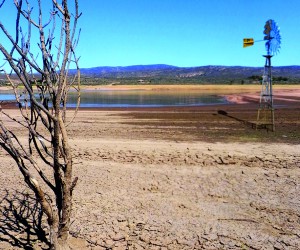Energy multinational Shell, who has applied for licenses to go ahead with hydraulic fracturing in the Karoo, are confident that the moratorium on issuing new exploration licenses for shale gas exploration, as announced by Mineral Resources Minister, Susan Shabangu, is governments attempt to better understand the technology behind the process and the advantages it can offer industry.
Shell put in an application for fracking in the Karoo region in 2011. Despite assurances from Shell that the procedure is safe and unharmful to the environment, the company met up with vociferous opposition from environmental lobby groups in France, the USA (where a string of earthquakes have been attributed to fracking), and South Africa, opposing the license, saying that the process is unsafe. Shell puts this opposition down to the fact that there are a lot of myths regarding fracking.
Shell government relations and communications manager Jackie Maitland told Mining Prospectus that the moratorium allowed the government more time to investigate, understand what is involved and engage with effected parties so they can make an informed decision.
“Shell remains committed to its proposed project in the Karoo and also to improving understanding of the shale gas potential and the technology used to develop that resource. Should these gas volumes prove to be as large as the US Energy Information Administration estimates, SA may even become self-sufficient in energy for decades to come,” she said.
Environmental lobbyists from The Treasure the Karoo Action Group (TKAG) says Shell is misleading the public and that there are no guarantees that the deposits of shale gas will be sustainable enough to power an industry for a lengthy period. “A well pad, typically 0,01 km² in size, can have more than 32 wells, so between 70 000 and 80 000 truck loads will move across the Karoo roads to service one well pad,” Chairperson of TKAG, Jonathan Deal, said.
This was the basis for their argument to the Department of Mineral Resources (DMR) and it seemed to have an effect as the DMR asked for time to investigate TKAG’s claims.
Considering the amount of water involved in each well, and that the Karoo is a semi-desert, Shell could find that the logistics behind water delivery will be a costly exercise. With no firm decision taken on the matter, it is still to be seen who has won the first round in the verbal battle against the process.
Reflecting on Shell’s current campaign with Mining Prospectus, Deal said that Shell has mounted a vigorous and ill-timed public campaign to try and convince the people of South Africa and government that shale gas mining is the best option for this country to create jobs, solve the country’s energy crisis and bring South Africa’s green house gas emissions into targeted levels. “Shell will continue to engage with stakeholders. It has South Africa’s best interests at heart and it remains committed to continuing a dialogue on the potential development of shale gas resources with all parties,” said Maitland.
Econometrix senior economist Rob Jeffrey said if hydraulic fracturing is done responsibly, the benefits that it can offer the industry and South Africa are significant. He pointed out that natural gas, which was 50% cleaner than coal, would also yield various other economic benefits, provided that it was successfully and safely used. (Jonathan Faurie)






